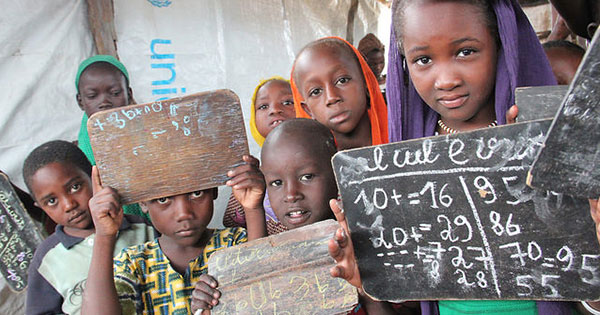
To see the world through the eyes of children is a gift and an opportunity. They are curious, imaginative, and unaffected by bias or preconceived ideas: a tiny dead lizard, half eaten by ants, may be as compelling as the operation of a giant concrete pump truck. And a child lives in the moment: no pressing appointment can deter fascination with that lizard.
For more than two decades, I’ve been writing about science for the public, but only in the past four years, since I became a mother, have I attempted to explain science to small children. There are certain parallels. I can’t assume that a reader, or a child, knows anything about a topic—or, indeed, that I know anything about it. That’s one reason writing the On Science column for The American Scholar has been a joy. For instance, I found that I needed to explain time to toddlers who could not distinguish between “yesterday” and “tomorrow” and realized that I myself could not adequately define time. So I set off to investigate it.
Time Marches On is my all-time favorite On Science column because, in the process of reporting it, I not only gained some small understanding of the subject but I also was able to explain it to my youngsters and to readers. My children were not my only inspiration; frequently I explored subjects that are dear to my heart: the environment, improving maternal and child health, and why more than a billion people in the world lack so basic a facility as a toilet. On the centenary of Britain’s entry into World War I, I wrote about Albert Einstein’s opposition to that war and his later renunciation of pacifism in the wake of Nazi Germany’s persecution of the Jews. And I looked at female stereotypes that show up in children’s books and what motivates poverty-stricken people to sell a kidney.
I am grateful to my editors at The American Scholar, Robert Wilson and Allen Freeman, for giving me freedom to explore my interests in this column, even when my own curiosity led me down some strange alleyways, such as the history of toilet roll dolls or why scientists at the University of Helsinki signed up a group of teenagers to investigate how cow pats decompose. I also thank Margaret Foster for posting my columns and patiently fielding my corrections, and Stephanie Bastek for fact-checking them. I am very appreciative, as well, for the cooperation of many scientists who answered questions about their research, and thank my family and friends who offered comments on topics and allowed me to quote them.
This is my last On Science column. I have loved writing it and am sad to say farewell. But after nearly two years of writing short pieces about endangered Madagascan millipedes or the danger of sandwiches, I’m devoting my time to longer-term projects. And of course, to educating my children on the wonders of flowers, lizards, and snails.

